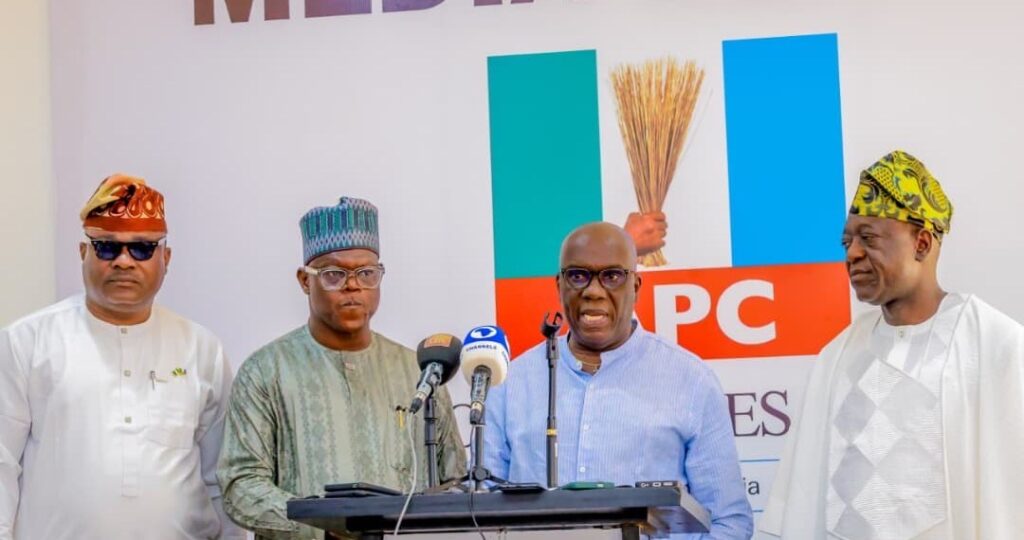Nigerians in UK Reject Farage’s Plan to Scrap Indefinite Leave to Remain

Some Nigerians living in the United Kingdom have criticised Reform UK leader, Nigel Farage over his proposal to abolish the Indefinite Leave to Remain (ILR) policy, describing it as unfair and hostile to migrants who contribute to the British economy.
Farage announced last Monday that his party would replace ILR with renewable five-year visas tied to stricter conditions, including higher salary thresholds and advanced English proficiency.
He also proposed mandatory private health insurance, exclusion from welfare benefits, and no access to the National Health Service without private coverage.
“We will abolish Indefinite Leave to Remain altogether, including rescinding it retrospectively,” Farage said.
“This will force people to reapply for visas every five years under much stricter rules, with higher salary thresholds of £60,000 or more, advanced English proficiency, private health insurance, and no access to the NHS or welfare without it.”
Farage argued that almost 800,000 people would soon qualify for ILR and claimed scrapping the scheme would save the UK more than £230 billion.
The announcement comes amid a surge in Reform UK’s popularity. A recent YouGov poll projected the party would win 311 seats if an election were held now — a sharp rise from the five it secured in 2024.
Farage, a close ally of former U.S. President Donald Trump, is positioning himself as a frontrunner to become Britain’s next prime minister.
But his remarks have drawn backlash from Nigerians in the UK, many of whom fear the policy would impose new hardships.
Immigration lawyer Dele Olawanle urged immigrants not to remain politically passive.
“If you are an immigrant in the UK and you don’t like voting, the ‘enemies’ of the immigrants will take over the UK. They will bring out crazy laws.
“We thought Brexit was impossible, but this guy, Nigel Farage, misled many Britons. He is at it again. You must prepare to vote,” he wrote on X.
Olawanle accused Reform UK of hostility toward foreigners.
“They see nothing good in immigrants, whereas the NHS, for example, will collapse without the immense contributions of immigrants.”
Other Nigerians voiced similar concerns. Skilled worker Olayemi Adelosi, based in Birmingham, described the plan as both unfair and unrealistic.
“The policy, if implemented, would affect all non-nationals irrespective of origin,” he said.
Adelosi questioned its viability and recalled Farage’s failed promises during the Brexit campaign.
He dismissed claims that migrants overuse benefits, pointing instead to the rising costs of ILR as evidence of the financial pressures already placed on immigrants.
Another resident, Vincent Ajayi, said the announcement had caused panic in the Nigerian community.
“They just want to make the process harder by extending it to 10 years. In other countries, one can get it within two to three years. People are scared, as they believe the Muslim community is taking over and the Black community is getting bigger. In a few years, it is said that White people will become a minority.
“There will be chaos if they start asking people to leave. Where do they expect people to go? I think this will apply to those who are just arriving. People who already have ILR will not have their residency cancelled.”
Ajayi urged Nigerians to act quickly.
“At this moment, there are many people who are due for ILR, and they are not getting it. If they keep delaying it, it will become more difficult for them to obtain it. Those who have not yet benefited could face difficulty, because anything can change. People are scared.
“Although Nigerians should not panic now, at least not until there is a change of government. That is when we may see the opposition parties implement this rule.”
According to official data, around 293,000 Nigerian-born residents lived in the UK as of the 2021/2022 census, with about 52,000 more arriving in 2024 alone.
Many now fear that Farage’s proposed reforms could disrupt their path to residency and long-term security.









